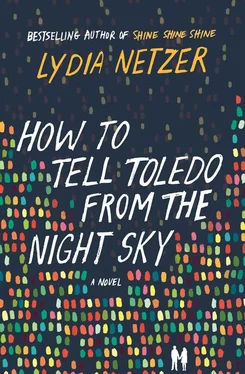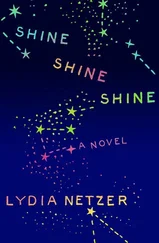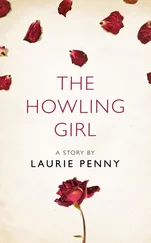She shut the lid on the garbage can. She sat down at the table in her mother’s little living area, where her mother had her computer, her television, her own private space. The enormity of the task at hand felt crushing to Irene. The house had to be emptied. Or she could live in it just the way it was. Her mother’s affairs had to be put in order. Or she could wait until someone came knocking at the door, or shut off the gas, or approached the house with a bulldozer.
Maybe she did want Belion to come.
If she said, “Empty the house, Belion,” then Belion would trudge in and out of the house carrying armload after armload of her mother’s possessions, inexorably, into a Dumpster that she could surely call and get, and then all of the stuff would be gone. Belion would do this for her without questioning, without analyzing what he was carrying, without balking at the strain. She should call him. But then she would have to explain about her mother, and she never explained her mother to people. If people couldn’t figure it out on their own, then they were too stupid to know the truth. Really, her whole life she had been wondering, how can people not know? How can they not figure it out? And really, what must they all think of her, the bad daughter, all this time? Because her mother kept everything hidden.
Irene stood up and began to go through the cabinets in the TV stand. She opened every drawer in the kitchen, pulling out piles of dishcloths, many unopened packages of plastic cups, bags of napkins, boxes of plastic silverware, endless saved Cool Whip containers, ant traps, roach spray, extra coffee filters, many cookie cutters, and a thousand plastic grocery bags. She threw phone books on the floor, phone books from every year since they had moved to this house. She dislodged a pile of crime thrillers, and several spiral notebooks.
She knew that what she was looking for would be downstairs, but where? In the powder room she found a drawer full of wine corks. Now we’re getting somewhere, she thought. Then, at the bottom of an antique copper basin full of extra toilet paper, she found the bottle, half full.
“Gin,” she said out loud. “There you are.”
Had she landed at the bottom of the stairs with a bottle in her hand, half empty, half splashed across her legs, then that would be something new. But instead it was the same as it ever had been, not an act of sudden heroism or decision, but a slow and silent death, cup by cup, pint by pint, measured into drinking glasses and nips from under the countertop.
Irene began to cry. She went back to the trash and pulled out the thing that was at the bottom. She tore off the grocery bags in chunks, flung them into the trash, and then she was holding an identical gin bottle, but this one was empty. She sobbed and blinked her eyes, and then she made herself stop sobbing. Each hand held a gin bottle. Irene could feel her face taking its traditional shape to match her place in this house. The face was blank. It had no reaction. Because the other person who lived in this house was too drunk to interpret a face having a reaction, and too drunk to care if it did.
“You did this,” she said. “You did this to me. You are a coward, a coward, a coward.”
She did not say, You left me, and now I am all alone. I should have been young, and happy, and proud, but now I am here with your gin bottle in my hand, and the only choice that matters is if I take a drink or not, if I sleep in your bed or in your chair, if I wear your clothes or burn them .
This was true, but it was not true. Irene was sitting with a gin bottle in her hand. But there was no one to take it away from and no place to hide it. She was lost, and she was alone, but she knew that she would never, ever, ever drink that gin.
Three years before Irene came back to Toledo, George had gone to visit an astrologer. As an astronomer, a doctor of science, shuffling down the street after a late dinner on a lonely barstool, he had every reason to sneer and shake his head at the astrologer’s studio, advertised with a neon blinking eye. But instead, George had stopped and stumbled up the sidewalk.
The psychic had met him at the door to her house, a silk skirt swirling around her legs, a silk scarf wrapped around her head, and a crust of rings over her fingers. He felt immediately that she knew him, and was happy to see him. It was a powerful feeling he did not question. George was not a man to question the existence of things that were strange. He had reasons for this. It wasn’t just lunacy.
“George, come in,” she had said. “Your name is George, isn’t it?”
“It is,” said George, impressed. “It is George. I am George.”
She pulled him in by the arm. She seemed excited, and treated him as if he were a marvel. The astrologer’s house from the outside was unremarkable. It wasn’t decked in improbable palm trees, or sporting a gold sidewalk. It had none of the ostentatious decorations commonly found on other astrologers’ places of business in the city. But it had the advantage of being between the office he was returning to and the restaurant where he had just been dining.
George had been a little bit drunk earlier in the evening. He had been a little heartbroken, saying good-bye to the most recent girl. He was not too heartbroken over this particular girl, but just a little heartbroken about the state of things. It doesn’t really matter, he told himself, walking back to his office, where he’d left his car. She wasn’t the one. So a little drunk and a little sad, he had seen the psychic’s neon light blinking from her window: a brightly lashed eye going open, closed. And he knocked.
The psychic helped him sit. While she was holding onto his elbow, she seemed to wobble on her legs a bit. It struck him, sinking down into the psychic’s sofa, that she might be a little drunk, too. Maybe they were both drunk. Hey, why not? If the other fellows at the institute found out he’d been here, he’d need a good excuse. “I was drunk,” he could say. “It doesn’t mean much. It doesn’t reflect my core beliefs or anything.”
“Tell me what you want to know,” she said to him. “Ask me anything.”
“I don’t know,” he said. “I don’t know what I want to know. I guess I’m looking for someone. A woman.”
“Do you believe in love?” she asked him. She took his hands in hers. Her rings were warm; the metal touched his hands, and she stopped his arms from moving all around.
“Of course,” he said. “I mean, not in a Huey Lewis way, but yes.”
“And are you prepared to give yourself up to love?” said the psychic. She was letting her head knock back and forth in a very convincing fashion, dangly earrings falling against alternating sides of her neck. He felt, in his mild intoxication, that she was pretty rad. Like authentic.
“Yes, I am prepared to give myself up for love. To love. Over love. Whatever.”
The psychic stopped rocking back and forth and her fingernails bit into George’s palm.
“What does your mother think about this?”
George pulled back. “Are you seeing something, about my mother? Are you reading something there?”
The psychic resumed her rocking. “I see your mother. She is standing in the canyon, and her body becomes a wall, becomes a wall hard and high, and the canyon is dry and parched, waiting for water, but the water is behind the wall of your mother, and she is holding it away from you.”
“She’s holding water away from me?”
“Water is love,” said the psychic curtly. “In this story water is love.”
“What can I do?” asked George. “Do I need to perforate her in some way? Dig under her? What?”
The psychic dropped his hands.
“Do you want me to look into my crystal ball?”
Читать дальше












